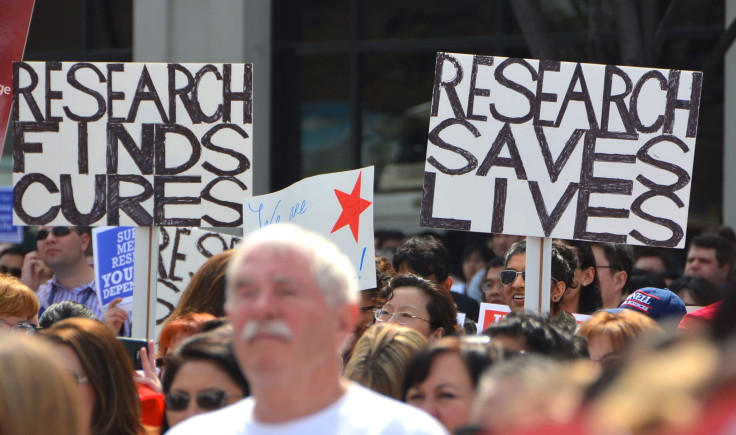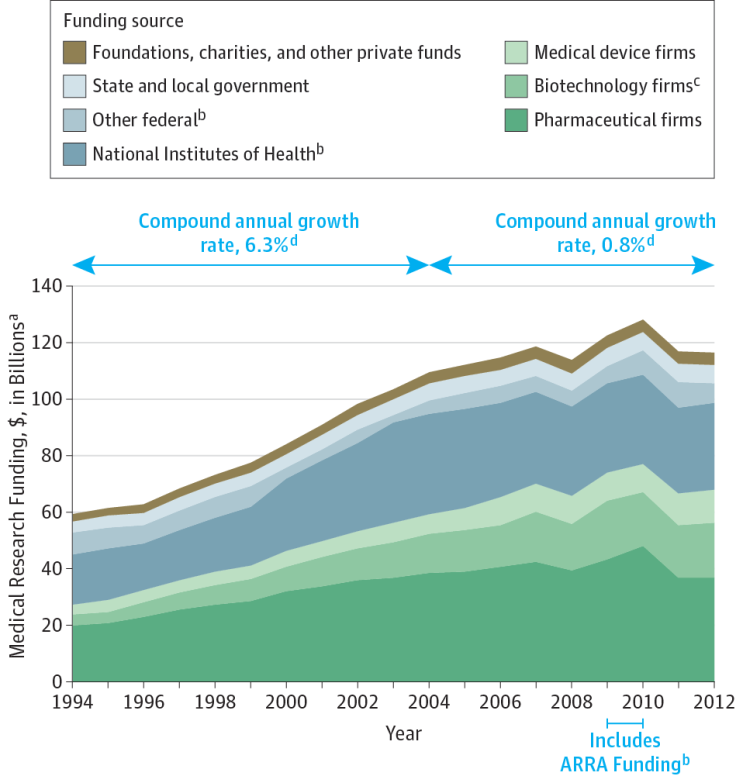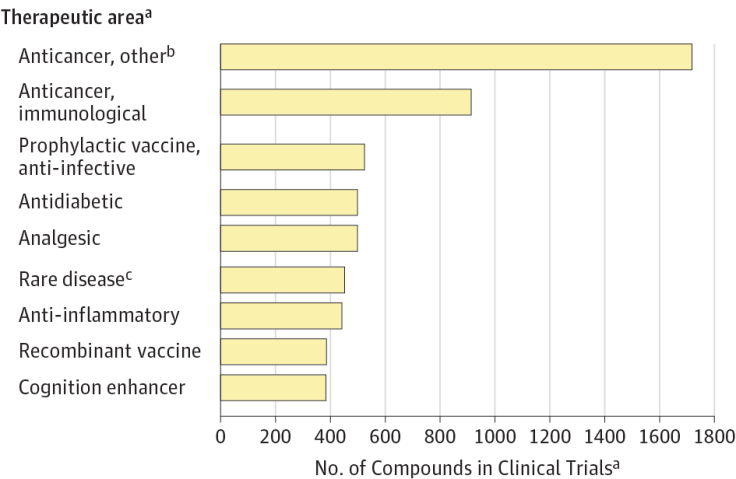US Medical Research Funding Has Been Declining Significantly Since 2004

The U.S. government’s funds toward medical research have been declining since 2004, placing the country at a disadvantage to other nations that have been moving forward with research, according to a new study published in the Journal of the American Medical Association (JAMA).
“The U.S. position as a global leader in biomedical research is being undermined,” the authors of an accompanying editorial wrote. “[O]ne indicator after another demonstrates numerous other countries outpacing the United States in their commitment to research.” They claimed that the U.S. is losing its competitive edge to other countries — particularly those in Asia.

The researchers found that the rate of U.S. research investment growth increased by six percent every year between 1994 and 2004. But this decreased by 0.8 percent a year from 2004 to 2012. In addition, U.S. contribution to global biomedical research funds fell from 57 percent in 2004 to 44 percent in 2012. Because of this drop in funds, early-stage research hasn’t been receiving enough attention, leaving many promising drugs and ideas behind. In addition, the authors argue that the amount of funding going toward cancer and HIV/AIDS research is larger than is truly needed for these diseases.
“The diseases where the need is greatest — autism, depression, Alzheimer’s, type 2 diabetes — are diseases that have been relatively underfunded compared to cancer and HIV/AIDS,” said Dr. Hamilton Moses, an author of the study and chairman of consulting group Alerion Advisors.

The researchers aren’t quite sure what has been causing the decline in funding, although it’s likely a number of things. They note:
Expectations for medical research vary sharply, depending on the observer’s perspective. For a patient affected by disease, it is a source of hope. For a parent of a child with a serious condition, it evokes both expectation and frustration over the pace of progress… For philanthropists and public health campaigners, research represents the best hope for alleviating the world’s most immediate health-related problems. To a scientist, research deepens critical knowledge and the way intelligence and organized effort can improve health. All of these constituents play a role in how research is funded and brought from bench to bedside. Meeting their collective needs produces a complex set of hurdles.
While the U.S. still retains its position as leader of biomedical research around the world, the authors argue that in order to maintain that position for much longer, new sources to support medical research must be discovered.
“New investment is required if the clinical value of past scientific discoveries and opportunities to improve care are to be fully realized,” the authors wrote in their conclusion. They continued, suggesting that “sources could include repatriation of foreign capital, new innovation bonds, administrative savings, patent pools, and public-private risk sharing collaborations.”
Indeed, trials for certain drugs and therapies can move pretty quickly if given the right amount of money and attention. For example, an Ebola vaccine or cure had never been developed until the outbreak lit a fire under the government's behind. Because the devastating outbreak captured the world's attention, scientists began scrambling to find a solution. In other words, a sense of urgency is often paramount in pushing things forward much more quickly.
“The machinery of research and development can move very effectively and you can get to new vaccines and new treatments rather quickly,” Moses said. “That’s why Asia is investing; Asia knows that biomedical research is a vehicle for them to enhance their international stature and the growth of their own populations.”



























